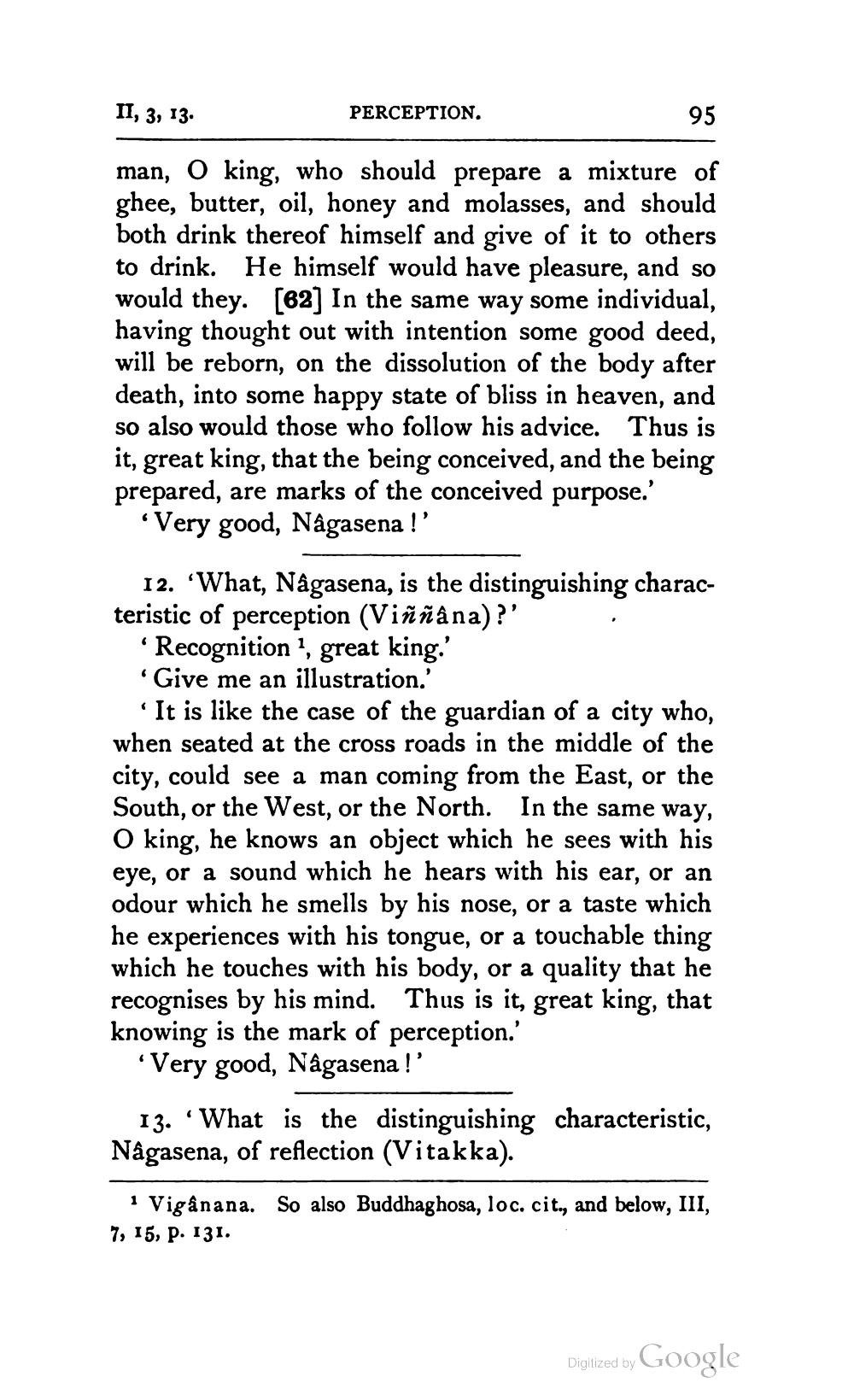________________
II, 3, 13.
PERCEPTION.
95
man, O king, who should prepare a mixture of ghee, butter, oil, honey and molasses, and should both drink thereof himself and give of it to others to drink. He himself would have pleasure, and so would they. [62] In the same way some individual, having thought out with intention some good deed, will be reborn, on the dissolution of the body after death, into some happy state of bliss in heaven, and so also would those who follow his advice. Thus is it, great king, that the being conceived, and the being prepared, are marks of the conceived purpose.'
Very good, Nagasena !'
12. 'What, Nagasena, is the distinguishing characteristic of perception (Viññana)?'
Recognition 1, great king.' Give me an illustration.' ' It is like the case of the guardian of a city who, when seated at the cross roads in the middle of the city, could see a man coming from the East, or the South, or the West, or the North. In the same way, O king, he knows an object which he sees with his eye, or a sound which he hears with his ear, or an odour which he smells by his nose, or a taste which he experiences with his tongue, or a touchable thing which he touches with his body, or a quality that he recognises by his mind. Thus is it, great king, that knowing is the mark of perception.'
Very good, Nagasena!'
13. “What is the distinguishing characteristic, Någasena, of reflection (Vitakka).
· Vigênana. So also Buddhaghosa, loc. cit., and below, III, 7, 15, p. 131.
Digitized by Google




